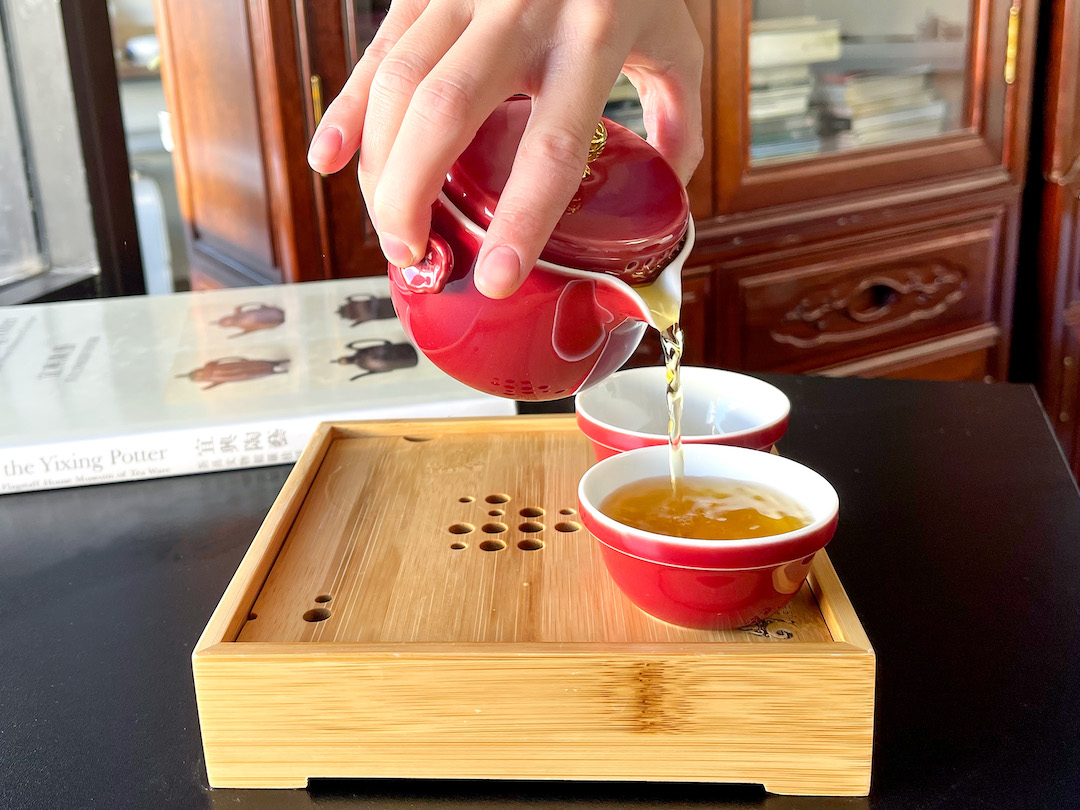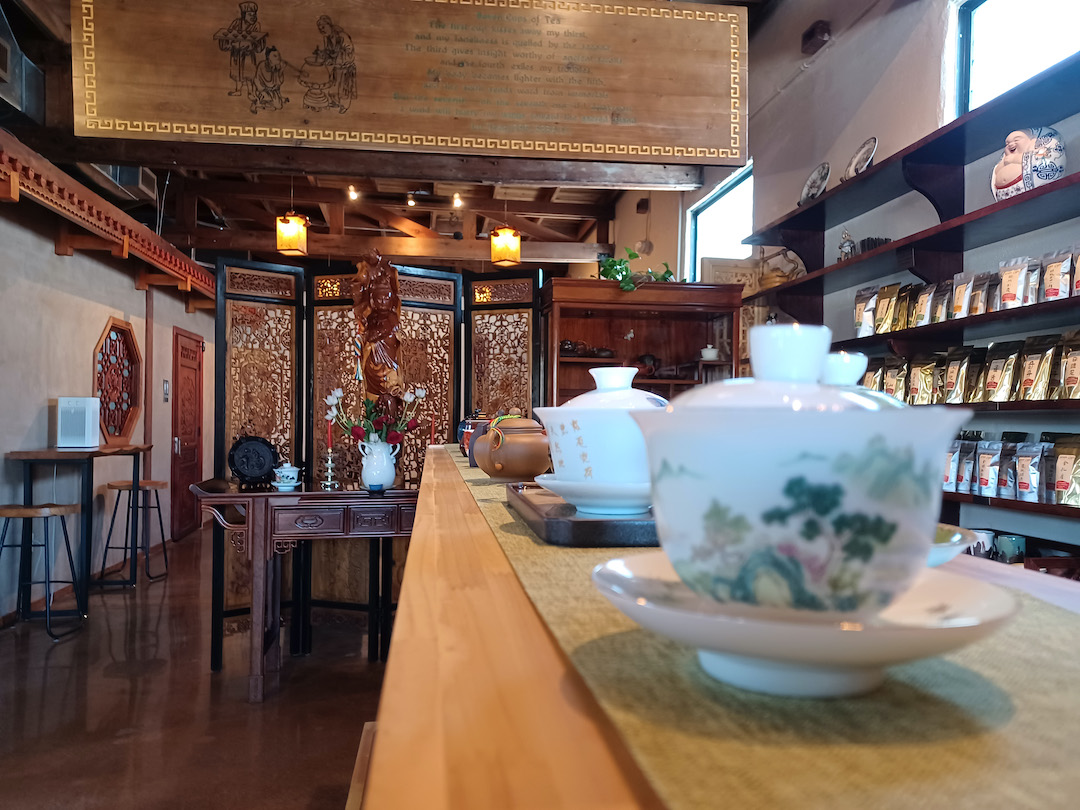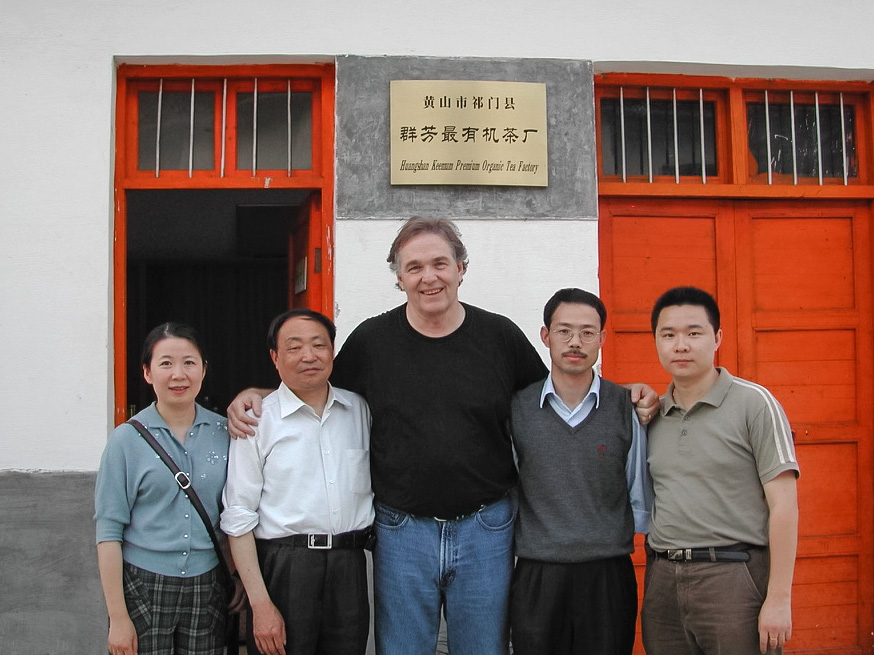Newsletter Archive Nov. 4, 2022

This weekend only, you can get 20% off three black teas, one from each of China’s most celebrated and historic centers of black tea production. Each is made from spring leaf from this year, unbroken and unblended for a true picture of their origin.
Tongmu Lapsang Souchong: The very first black tea from the original village that invented it. The resinous incense qualities of pine smoke are there, yes, but the real star of the show is the longan-fruit sweetness, unique to authentic Tongmu black tea.
Qimen Caixia (Sunrise Qimen): The unconventional of the historic origins, boldly making black tea from the early spring for centuries. Its fragrance is so singular, the official taster lexicon of China simply calls it the “Qimen aroma.”
Jin Kongque (Golden Peacock): Wonderfully dark, peppery, malty, and potent. A portrait of Dianhong, black tea from Fengqing, Yunnan, the youngest of the classical origins.
If you need something to brew your black tea in, consider the new lineup of Yixing teapots and other fine teaware we’ve just made available. Yixing itself has a culture of black tea consumption, and its ceramics beautifully suit the style.
Keep an eye on the teaware section, as more and more new items become available online each week. If you’re in Tucson, you’ll find some exclusive items in our teahouse, too.

As Seven Cups celebrates 20 years in business this month, we’ve found ourselves reflecting on how the company came together in the early years, when we first started working with certain tea makers and sourcing certain teas. In that spirit, we’ve designed the next few weeks as a sort of retrospective. We’re featuring teas from our longest relationships, made in old-school styles that harken back to the Chinese tea market of the turn of the century.
Chinese black tea might be the one style that’s changed the most in these two decades, although puer and heicha have a pretty strong claim to that title too. We’ve talked a lot about the transformation before, so now we’re focusing on the classics.
The first black teas came into Seven Cups’ early catalog in 2003, when Austin began buying tea from northern Fujian, and the historic black tea origin of Tongmu was the first among them. We presented our customers with Tongmu Lapsang Souchong, then known as “the original Lapsang Souchong” – emphasizing the importance of this origin at a time when the renaissance of black tea hadn’t yet begun. Despite its history, Tongmu was hardly a name known to tea drinkers in China, much less outside of it.

Austin then traveled to Qimen in the springtime of 2004. Along with him was Jiang Yanxun, one of the future architects of Jin Jun Mei. In Qimen, Jiang and Austin found tea makers who were already striving to make utterly distinct black teas from tiny early spring leaves—perhaps inspiration for Jin Jun Mei just a year later. Naturally, a whole-leaf early-spring Qimen black tea came into Seven Cups’ catalog from this trip. A few lucky old friends of Seven Cups might have a bag of “Spring Dawn Qimen” from this era in their collection. Its modern incarnation, Qimen Caixia, still drops our jaws today.
Lastly, 2004 also brought the beginnings of Seven Cups’ relationship with the Dianhong Group of Yunnan’s Fengqing County. As the first chests of their big-leaf Assamica black tea arrived in Tucson, Seven Cups’ catalog was now broad enough and customer support was strong enough to demand a home other than the St. Philips farmers market.
Our teahouse opened very shortly after—and now, 20 years after it all started, it feels right to brew up another pot of these old classics and open the doors of a new teahouse to you once more.
